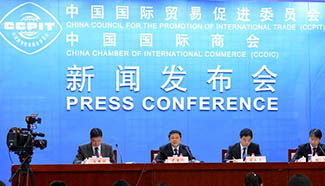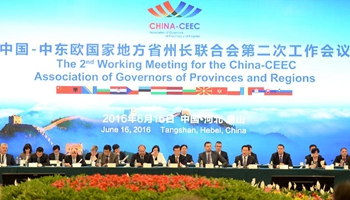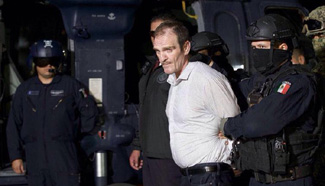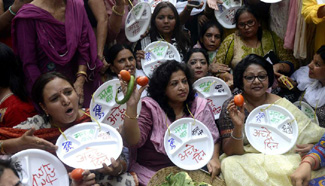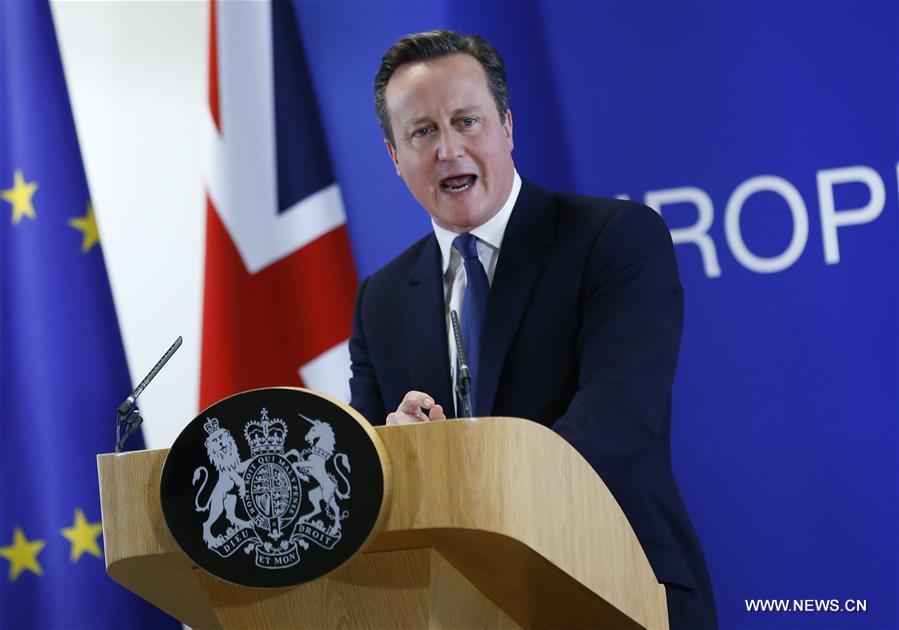
BRUSSELS, Feb. 19, 2016 (Xinhua) -- British Prime Minister David Cameron addresses a press conference at the end of an extraordinary two-day EU summit at the European Council in Brussels, Belgium, Feb.19, 2016. European leaders on Friday night reached a deal on British Prime Minister David Cameron's reforms after marathon talks, President of the European Council Donald Tusk tweeted. (Xinhua file photo/Ye Pingfan)
BEIJING, June 16 (Xinhua) -- Europe seems to be experiencing a "referendum fever," starting with the "Brexit" on June 23, followed by the constitutional amendment referendum in Italy and refugee quota referendum in Hungary.
On the surface, referenda are the most formidable tool of democracy, giving voters a direct say on political, economic and social issues. However, behind the "referendum frenzy" in Europe, there are evolutions that may harm democracy.
MISAPPLICATION OF REFERENDUM
Looking back on the referenda held in European countries in the past few years, it is easy to find that the democratic tool has been frequently misapplied.
First of all, referenda, created to compensate and remedy the representative democracy, have been applied as a political tool to exert or fend off pressure.
Taking Greece's referendum during its debt crisis as an example, Prime Minister Alexis Tsipras aimed to grasp more negotiation room from the Europe Union and international creditors by extortion with Greek public will.
Second, referenda have become a channel for people to air grievances, rather than being decisive in major issues.
The Dutch referendum, which was originally on the Association Agreement between the European Union and Ukraine, turned into a protest vote against the EU by euroskeptics.
Third, referenda on occasions cover the essence of problems and postpone the outbreak of crises, making situation more complicated.
BREAKING PROMISE, SHIRKING RESPONSIBILITY
Frequent referenda show increased disappointment of the public at political elite, said Cui Hongjian, a senior research fellow on European studies at the China Institute of International Studies.
Referenda, supposed to get citizens engaged in politics and make governments responsive, are also a double-edged sword, Cui said, as they seem to attract the broadest public will thus bring about authority and legitimacy, but in fact they are reflection of shirking responsibility by some politicians.
Critics argue that voters are forced to make decisions on complex issues about which they may not have complete knowledge. Referenda tend to create the illusion that complex issues can be presented in simple terms, and the vote is often reduced to a binary "yes" or "no."
FROZEN, REVERSED EU INTEGRATION
Given the current situation in Europe, the spate of referenda may continue and cause political and social impact.
First of all, inspired by Brexit, many European countries are expected to hold referenda to gain political ground domestically and force the EU to compromise.
Second, referendum makes "reaching consensus" increasingly hard, even exacerbates contradiction and creates breeding ground for populism.
Stefan Lehne, a visiting scholar at Carnegie Europe in Brussels, said "it's almost impossible now to see how 28 states would ratify an EU reform treaty."
In the Brexit case, British Prime Minister David Cameron said the upcoming referendum can solve Britain's "EU problem." However, the referendum in fact strengthens opposition and exacerbates social division.
Related:
Brexit to create instability, uncertainty: Irish PM
DUBLIN, June 13 (Xinhua) -- Irish Prime Minister Enda Kenny said on Monday a Brexit would create instability and uncertainty, as well as the likely return of border checkpoints between Britain and the Republic of Ireland.
"Stability and certainty are absolutely essential to successful small open economies," Kenny said in a speech at Ulster University, Belfast, referring to how this would affect the relationship between Northern Ireland -- a part of Britain -- and the Repbulic of Ireland. Full story
Brexit could start destruction of EU, western political civilization: EU President
BERLIN, June 13 (Xinhua) -- A Brexit could be the beginning of the destruction of not only the European Union, but also of the entire western political civilization, warned European Council President Donald Tusk in an interview published on Monday.
Ten days ahead of a referendum in Britain on the country's membership of EU, Tusk told German Bild newspaper that it would be dangerous if the British people decide to leave the union. Full story
British PM denounces Brexit's "complete untruths" in hastily called briefing
LONDON, June 7 (Xinhua) -- British Prime Minister David Cameron held an unscheduled press conference Tuesday to denounce what he described as "complete untruths" from Brexit campaigners.
He called on millions of young people to register to vote in the June 23 EU referendum before a midnight deadline, and urged Britons to back his call to stay in the European Union. Full story





